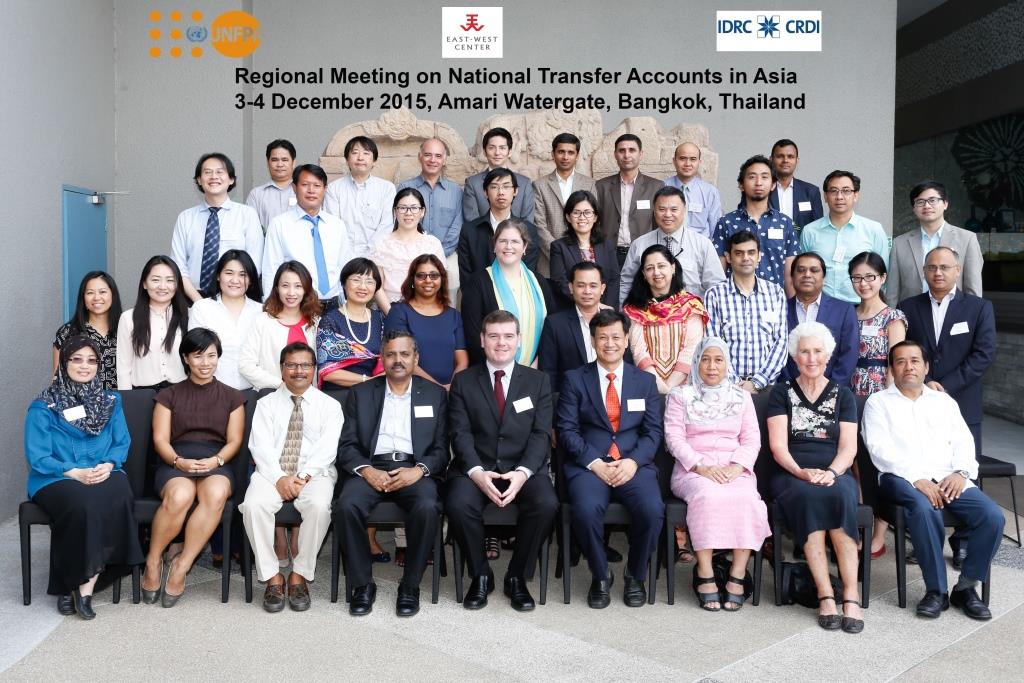Regional Meeting on National Transfer Accounts in Asia, Bangkok, Thailand, December 3-4, 2015

SYNOPSIS
The National Transfer Accounts (NTA) provides a complete accounting by age of how economic resources are produced and consumed, and how each country relies on government programs, family systems, and financial markets to achieve the final distribution of these economic resources. The NTA provides a unique and invaluable framework for investigating how changes in population age structure will influence national development, economic security, generational equity, gender equality, public finances, and many other important public policy issues. One of the important contributions of the NTA project is to broaden our understanding of the implications of linkages between population dynamics and development. All modern societies rely on a variety of institutions and economic mechanisms to shift economic resources from the working ages to the dependent ages – the young and the old. Governments at the local, regional and national level play an important role in contemporary society – governments tax those in the working ages and provide benefits to the young and to the old. Education, public pensions, and healthcare programs are important examples of public programs that serve this purpose.
The NTA highlights how demographic change presents an important challenge to national and regional leaders. Several countries in the region, such as India, Pakistan and the Philippines, are experiencing a demographic dividend as their populations become increasingly concentrated in the working ages. For these countries, it is important to examine conditions and policies that affect the size of the dividend and convert the transitory age distribution benefit into a long term boost for rates of economic growth. In other countries in Asia, such as China, Thailand and Vietnam, the working-age population is growing slowly or in decline and the old-age population is growing rapidly. There are concerns about slow economic growth or economic decline due to a large dependent old-age population or low saving rates.
Seven UNFPA Asian programme countries have produced NTA in the past: Cambodia, China, India, Indonesia, the Philippines, Thailand, and Vietnam. Preliminary work has also been carried out in Bangladesh, Lao PDR, Iran and Malaysia, and Pakistan is keen to develop an NTA. Before the February 2015 Pattaya meeting, only Thailand has updated its NTA with recent data but by the November 2015, most Asian countries have updated or currently updating their NTAs.
The primary goal of the collaboration will be to build capacity in the region to generate better understanding of the importance of population dynamics for policy development through improved NTA data quality and application of NTA output in policy advocacy. The underlying premise of the project is to help Asian policy-makers foster more sustainable and inclusive development, which meets the needs of current and future generations without compromising fiscal sustainability.
The objectives of the 2015 regional meeting are as follows.
- Present new NTA results;
- Discuss technical progress and set-backs requiring fine-tuning of support - strategies;
- Discuss how to use the data for policy formulation; and
- Acquaint national officials with NTAs methodology and equip them with the tools to understand the usefulness of such a methodology in their countries.
In particular, we will summarize the 2015 activity and set plans for collaboration for 2016-2017 between the UNFPA and the EWC.
